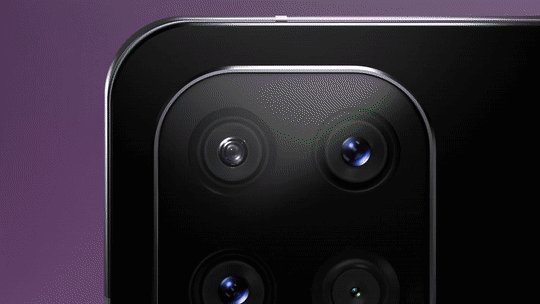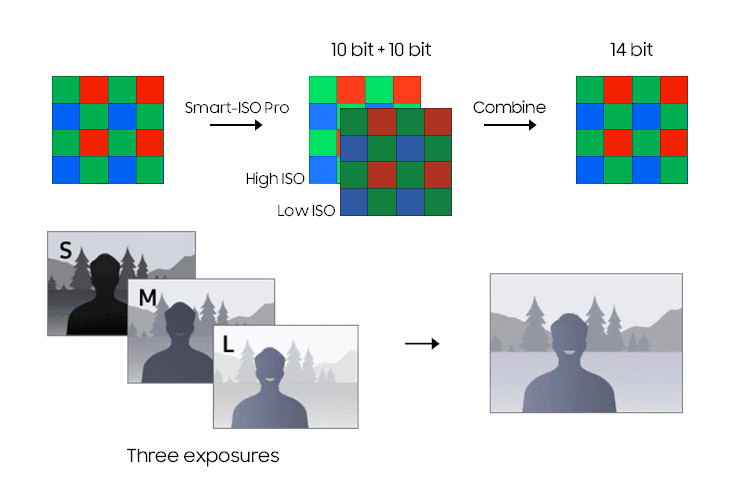
Samsung just announced the ISOCELL HP3 sensor as the successor to last year’s ISOCELL HP1 sensor, which we are yet to see in smartphones. The new sensor industry’s smallest 0.56-micrometer (μm)-pixels, which is 12% smaller pixel size than the predecessor’s 0.64μm, packing 200 million pixels in a 1/1.4” optical format compared to 1/1.22″ in the HP1.
The ISOCELL HP3 can enable an approximately 20% reduction in camera module surface area, allowing smartphone manufacturers to keep their premium devices slim, said Samsung.
Super QPD
The Super QPD solution offers autofocusing capabilities to all the sensors. In addition, Super QPD uses a single lens over four-adjacent pixels to detect the phase differences in both horizontal and vertical directions. This paves way for a more accurate and quicker autofocusing for smartphone camera users, said Samsung.
It offers 8K at 30 frames-per-second (fps) or 4K at 120fps video recording, with minimal loss in the field of view when taking 8K videos.
Tetra pixel
![]()
The Tetra pixel technology combines four pixels into one to transform the 0.56μm 200MP sensor into a 1.12μm 50MP sensor, or a 12.5MP sensor with 2.24μm-pixels by combining 16 pixels into one. The technology enables the sensor to simulate a large-sized pixel sensor to take brighter and more vibrant shots even in dimmed environments, like in-doors or during nighttime.
Smart-ISO Pro and staggered HDR

The improved Smart-ISO Pro feature merges image information made from the two conversion gains of Low and High ISO mode to create HDR images. The upgraded version of the technology comes with a triple ISO mode – Low, Mid, and High – that further widens the sensor’s dynamic range.
In addition, the improved Smart-ISO Pro enables the sensor to express images in over 4- trillion colors (14-bit color depth), 64 times more colors than the predecessor’s 68 billion (12-bit).
Furthermore, by supporting staggered HDR along with Smart-ISO Pro, the ISOCELL HP3 can switch between the two solutions depending on the filming environment to produce high-quality HDR images.
Availability
Samsung is already shipping ISOCELL HP3 GN5 sensors to OEMs, and mass production is set to begin this year. Can we expect this in Galaxy S23 Ultra next year? Only time will tell.
